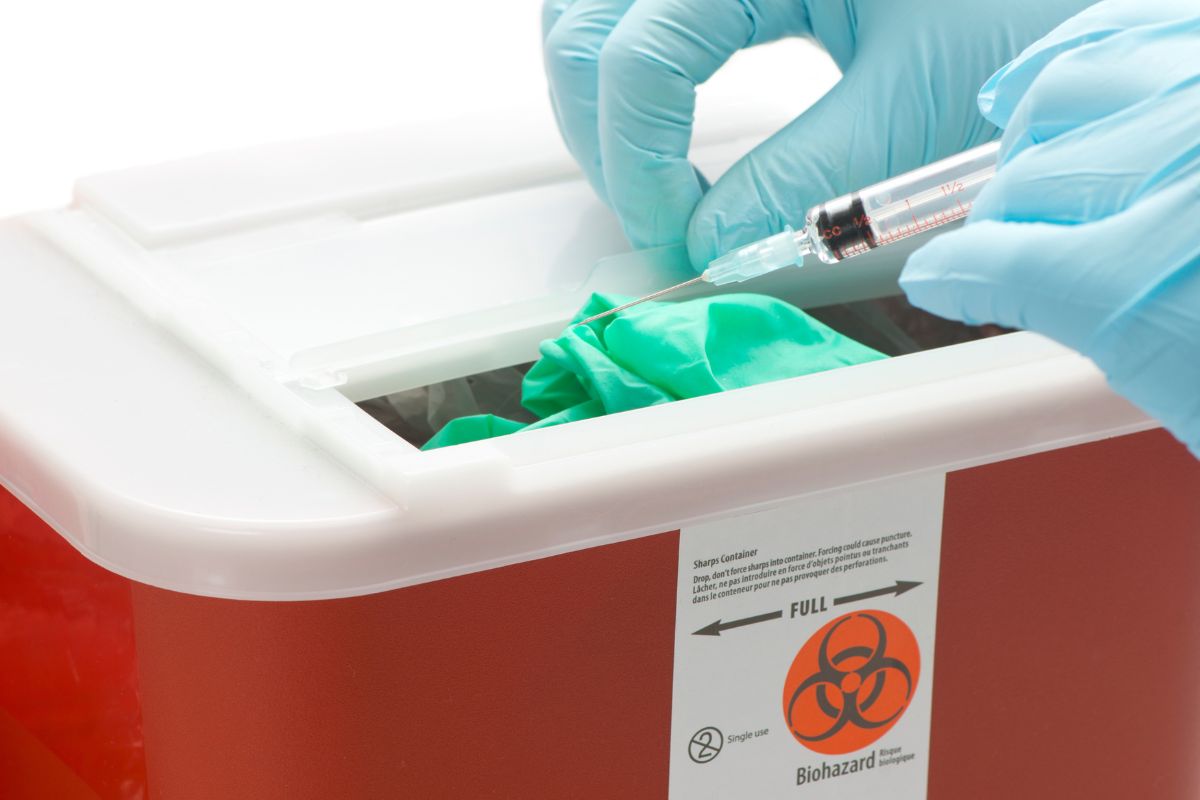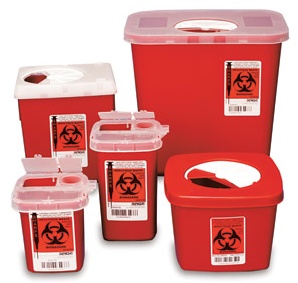Navigating Medical Garbage Disposal: Important Services for Medical Care Facilities
In the elaborate landscape of medical care procedures, the monitoring of medical waste is a crucial element that demands careful interest. Medical care facilities, whether huge health centers or tiny facilities, are left with the responsibility of handling, treating, and taking care of a vast range of clinical waste streams. The intricacies associated with navigating with the regulatory demands, ensuring appropriate waste segregation, and implementing safe collection and transport procedures are paramount. Recognizing the crucial services that sustain medical waste disposal is not simply an issue of compliance but also a basic part in protecting public health and wellness and ecological health. The complexities of this process are essential for health care facilities, and the competence used in this realm plays a crucial role in keeping the stability of medical care systems.
Regulatory Compliance Assistance
For medical care centers, making certain regulatory compliance assistance is necessary to maintain correct handling and disposal of medical waste. By partnering with governing conformity professionals, medical care centers can remain current on evolving laws, mitigate risks connected with improper waste disposal, and inevitably add to a safer and more lasting atmosphere for all.
Waste Partition Assistance

Medical care facilities must give clear standards and training to team on just how to segregate waste successfully. This includes dividing basic waste from harmful products such as sharps, transmittable waste, drugs, and chemical waste.
Collection and Transport Providers

Correct collection and transport services are vital components of the medical waste disposal process in healthcare centers. These services guarantee that dangerous materials are dealt with safely and in conformity with guidelines to safeguard both the atmosphere and public wellness. Medical care centers count on specialized waste administration companies to supply efficient collection and transport solutions customized to their demands.
Clinical waste collection involves segregating different kinds of waste at the factor of generation, utilizing color-coded bags or bins to differentiate between general, hazardous, pharmaceutical, and various other waste streams. Trained workers should do this job to stop contamination and make certain appropriate disposal. When accumulated, the waste is transported in committed lorries outfitted to take care of dangerous products securely. These vehicles stick to rigorous safety criteria and comply with assigned paths to licensed treatment centers for disposal via methods such as sanitation, incineration, or landfilling.
Treatment and Disposal Solutions
In the world of medical waste disposal for healthcare facilities, after the essential stage of collection and transportation solutions, the emphasis shifts in the direction of implementing efficient treatment and disposal services. Therapy services often entail processes such as autoclaving, which uses vapor under pressure to sterilize the waste. This technique is generally utilized for contagious waste that has to be made non-hazardous prior to disposal. An additional common therapy method is incineration, where waste goes through heats in regulated setups to lower its volume and get rid of pathogens.
Disposal solutions encompass the final action in the medical waste administration procedure. Reusing and resource recovery are also obtaining traction as sustainable disposal choices for specific types of medical waste materials.
Effective treatment and disposal solutions are paramount in ensuring conformity with laws and securing public wellness and the environment. Healthcare centers must meticulously examine and select proper techniques that align with their waste monitoring goals and sustainability campaigns.
Staff Training and Education

To effectively manage medical waste disposal in healthcare facilities, thorough personnel training and education play an important role in ensuring adherence to governing requirements and maintaining a safe atmosphere. Proper training equips personnel with the understanding and abilities needed to deal with various kinds of clinical waste, segregate them properly, and package them firmly for disposal. By informing staff members on the risks connected with improper handling of clinical waste, facilities can reduce the chance of mishaps, contamination, and regulatory violations.

Final Thought
Finally, healthcare centers depend on vital clinical garbage disposal services to make sure governing conformity, proper waste partition, secure collection and transport, reliable treatment and disposal, in addition to personnel training and education. These services play a critical role in keeping the health and wellness and safety and security of both health care workers and the public, highlighting the importance of proper management of clinical waste in medical care setups.
For health care centers, ensuring regulatory conformity assistance is necessary to preserve appropriate handling and disposal of medical waste. Waste segregation entails classifying different kinds of clinical waste to ensure ideal handling, therapy, and disposal. This includes separating basic waste from unsafe products such as sharps, transmittable waste, drugs, and chemical waste.Medical waste collection involves setting apart various types of waste at the point of generation, making use of color-coded bags or containers to differentiate between general, unsafe, pharmaceutical, and other waste streams.In the realm of clinical waste disposal for healthcare facilities, after the important stage of collection and transport services, the emphasis moves towards implementing reliable treatment he said and disposal remedies.